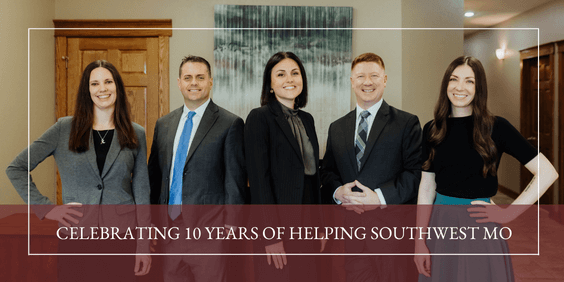Ten years ago, I did one of my professional career’s most challenging and best things. I left the Greene County Prosecutor’s Office to start my own firm.
My work as a prosecutor was very fulfilling, and I worked with some great people, but I had achieved everything I had set out to do: become a great attorney.
As a prosecutor, I had seen every type of case. I started as a child support prosecutor, spent time in the traffic unit, in the crimes against persons unit, in major crimes, and I finally was in charge of training all the other young attorneys. I had seen every sort of criminal case. Each of those roles taught me about the next part of my journey. I was ready to open up my criminal defense firm.
Starting on your own with just a computer and a phone is the sort of thing that keeps you up at night. There was no support system structure, and there were no systems in place to make sure a case didn’t get forgotten. I had to create all of that from scratch, and while I was an outstanding attorney, I had to learn how to be an exceptional law firm owner, which is complicated.
After about six months I had staff, and we designed processes for answering the phone and handling clients and built the systems together. I talked to everybody that would listen to me. If I saw an attorney doing something in court that I didn’t understand, I pulled them aside and said, why’d you do that. I would read every book that I could get my hands on. I would read every email, every note from the Bar, and listen to every podcast. And ultimately, I realized the best way was going to be my way. No one had a perfect system, so I had to make one perfect for me.
After about a year and a half, the business got busy. I was in too many courts at once. I reached out to my friend, Russell Dempsey, with whom I had tried multiple jury trials, and said, hey, if you want to come on board, here are my books. We went into business together.
The cases that keep me close to the game are the ones I’ve lost. And not lost the case, but I’ve had three clients overdose. And those are the cases that keep thinking, what could I do? I had a client who would give me the best hugs. And I worked hard for him, I’d gotten him into drug court, and I think he knew he was about to go into drug court. He decided to use again, his old amount, overdosing.
The benchmark cases…we win, we lose, we fight. Sometimes we get really lucky, and sometimes we don’t. It isn’t win/loss; it is minimize the damage. No matter what, my goal is to help. To each of my clients, their cases are incredibly important. That means they’re incredibly important to us.
